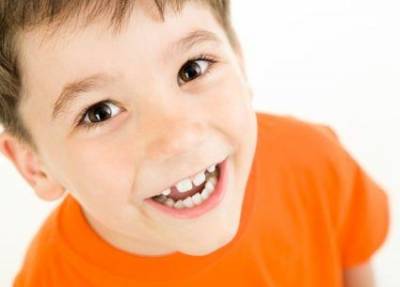 The tooth fairy could soon face competition for baby teeth from scientists who have discovered the teeth are a source of stem cells. The cells could help repair damaged teeth and perhaps even treat neural injuries or degenerative diseases. The tooth fairy could soon face competition for baby teeth from scientists who have discovered the teeth are a source of stem cells. The cells could help repair damaged teeth and perhaps even treat neural injuries or degenerative diseases.
Currently, researchers can isolate two types of stem cells. Embryonic stem cells can develop into any cell in the body, but their harvesting requires the destruction of embryos, which pro-life groups oppose. Adult stem cells avoid this problem, but have more limited abilities. Now it appears that the stem cells from children's lost teeth could provide an intermediate and easily accessible source. "These stem cells seem to grow faster and have more potential to differentiate into other cell types than adult stem cells," says Songtao Shi, a pediatric dentist at the US National Institutes of Health in Bethesda, Maryland. Shi and his colleagues found the baby teeth cells can differentiate into tooth-forming cells called ondontoblasts, and also neural cells and fat cells. Baby teeth, also called milk teeth or deciduous teeth, appear from the age of about six months and then fall out when children are between six and 13 years old.
Daughter cells Previous work by Shi in 2000 had already shown that extracted adult wisdom teeth contain stem cells in the pulp at the centre of the tooth (PNAS, vol 97, p 13625). So when his six-year old daughter and her friends started losing their baby teeth, he decided to see if they also contained stem cells. Whenever a tooth fell out, instead of putting it under the pillow, the parents stored the tooth in a glass of milk in the refrigerator overnight. To isolate the stem cells, Shi extracted the pulp and cultured the cells for several days, then tested the survivors for markers of stem cell activity. About 12 to 20 cells from a typical incisor tooth turn out to be stem cells. By culturing the cells in various growth factors, Shi could differentiate the cells into tooth-forming cells, fat cells or neural cells. The differentiated cells survived when implanted under the skin and in the brain of immunocompromised mice. Shi also found that the cells promote the growth of bone. He suspects the stem cells may play a role in preparing the way for adult teeth. "We don't have evidence at the moment, but we think these stem cells do have a reason to be there." The discovery of stem cells in baby teeth could give a big boost to oral surgery, says oral biologist Bjorn Reino Olsen, at Harvard Medical School. The cells, once differentiated into odontoblasts, could secrete dentine. This bone-like material could then replace the less biocompatible metal posts that are currently used to anchor implants to the jaw. Direct Link: http://www.newscientist.com/article/dn3643-baby-teeth-revealed-as-source-of-stem-cells.html | 
 Home
Home 
 My profile
My profile Registration
Registration Log out
Log out Login
Login